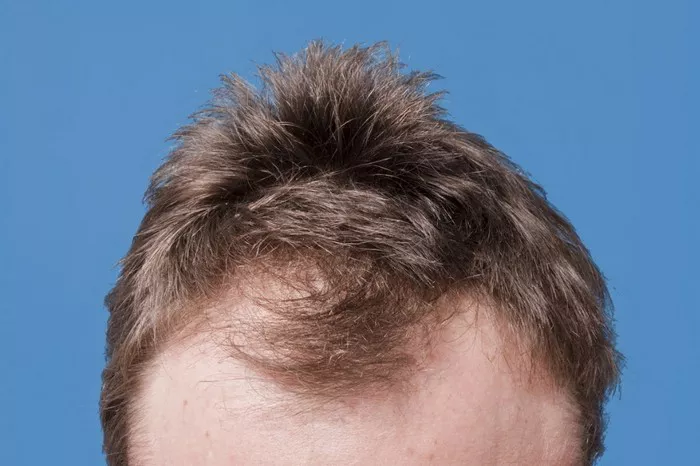In today’s fast-paced world, hair loss is a concern that affects many individuals. While genetics and aging play a significant role in this issue, lifestyle choices can also contribute to hair thinning and loss. Among these choices, smoking stands out as a harmful habit that can have detrimental effects on your hair health. In this article, we will delve into the relationship between smoking and hair loss, exploring the underlying mechanisms and providing practical insights to help you maintain a healthy head of hair.
What is Smoking?
Smoking is a detrimental habit characterized by inhaling tobacco smoke, primarily through cigarettes. It exposes individuals to a cocktail of harmful chemicals, including nicotine and tar. Nicotine is highly addictive, making smoking challenging to quit. Beyond its well-documented association with severe health issues like lung cancer and heart disease, smoking also impacts hair health. It reduces blood flow to the scalp, damages hair proteins, disrupts hormones, and can lead to hair loss. Smoking not only harms the smoker but also endangers those exposed to secondhand smoke. Quitting smoking is essential for better health, including improved hair condition and overall well-being.
Does smoking affect hair follicles?
Your hair’s growth and health largely depend on the health of your hair follicles. Smoking restricts blood flow and oxygen delivery to various parts of your body, including your scalp. This diminished blood flow can weaken your hair follicles, making them more susceptible to damage and leading to hair thinning and eventual loss.
1. Oxygen Deprivation:
When you smoke, carbon monoxide inhaled from tobacco binds with hemoglobin in your bloodstream, reducing the blood’s ability to carry oxygen. This oxygen deprivation affects the hair follicles, hindering their ability to function optimally.
2. Free Radicals:
Cigarette smoke is a potent source of free radicals, highly reactive molecules that can damage cells and DNA. These free radicals can harm the hair follicles, accelerating hair loss.
Smoking causes hormonal disorders
Smoking can disrupt the delicate balance of hormones in your body, including those that influence hair growth and maintenance. Nicotine and other chemicals in tobacco can lead to hormonal imbalances, potentially exacerbating hair loss.
1. Androgenetic Alopecia:
Research suggests that smoking may increase the levels of hormones like dihydrotestosterone (DHT), which is linked to androgenetic alopecia, a common cause of hair loss in both men and women.
2. Telogen Effluvium:
Smoking-induced stress can trigger a condition known as telogen effluvium, where hair follicles prematurely enter the resting phase of the hair growth cycle, leading to excessive shedding.
Damage to Hair Proteins
The harmful substances in cigarette smoke can also directly damage the proteins that make up your hair. These proteins are essential for maintaining hair strength and elasticity.
1. Weakening of Hair Shaft:
Smoking can weaken the hair shaft, making it more prone to breakage and causing hair to appear thin and brittle.
2. Premature Graying:
Some studies suggest a correlation between smoking and premature graying of hair. While not directly related to hair loss, this can contribute to an overall appearance of diminished hair health.
Secondhand Smoke and Hair Loss
It’s not just smokers who are at risk; exposure to secondhand smoke can also have adverse effects on hair health. If you live with a smoker or spend time in smoky environments, you may be indirectly increasing your risk of hair loss.
1. Passive Smoking Effects:
Secondhand smoke contains many of the same harmful chemicals as direct smoke. Inhaling these toxins can lead to similar consequences for your hair.
2. Protecting Yourself:
If you cannot avoid secondhand smoke entirely, consider measures to reduce exposure, such as improved ventilation or discussing the risks with the smoker and encouraging them to quit.
Quitting Smoking and Hair Regrowth
The good news is that quitting smoking can lead to hair regrowth and improved hair health. When you quit smoking, your body begins to repair the damage caused by tobacco, including the negative effects on your hair.
1. Recovery Timeline:
After quitting, you may start to see improvements in your hair’s thickness and overall health within a few months to a year, depending on the extent of previous damage.
2. Seek Support:
Quitting smoking can be challenging, so consider seeking support from healthcare professionals, support groups, or cessation programs to increase your chances of success.
See Also: [Revealed!] How Much is Too Much Hair Loss When Washing Hair?
In conclusion
The connection between smoking and hair loss is clear, with multiple mechanisms at play. From reduced blood flow to hormonal imbalances and direct damage to hair proteins, smoking can significantly impact your hair health. However, the good news is that quitting smoking can lead to hair regrowth and a healthier-looking mane. Take the first step towards better hair and overall health by breaking free from this harmful habit. Your hair will thank you, and so will your body.


